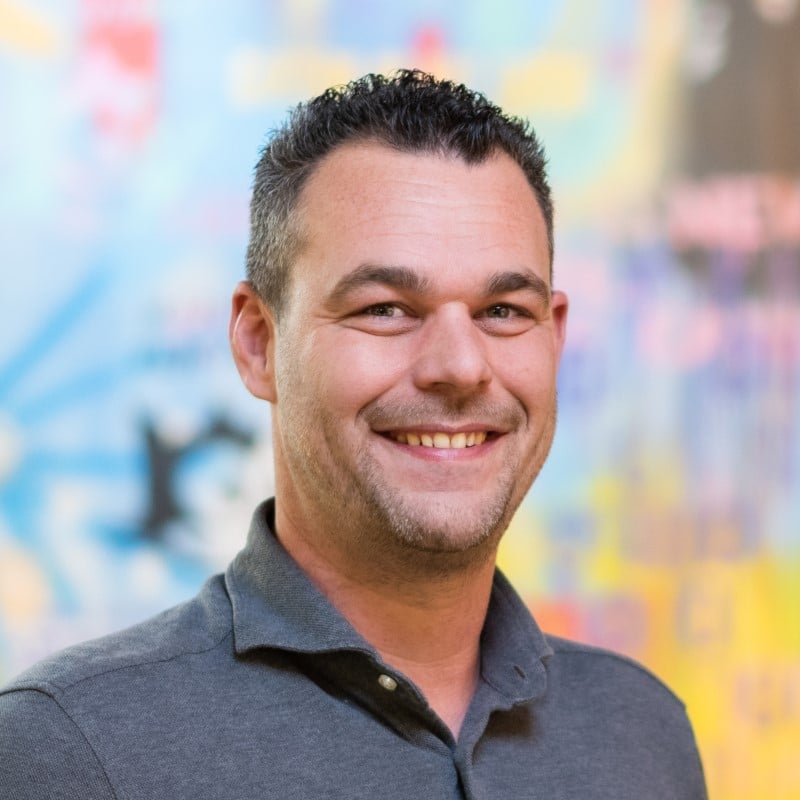An Agile Transformation Journey with GEA Food Solutions
Fierce international competition, shifting customer demands, and a growing focus on sustainability. Recognizable themes for many organizations, especially if you work in the manufacturing industry. That’s how it all started for GEA Food Solutions, a global manufacturer in the food processing industry.
Join us to dive deeper into how the organization succeeded in improving its product innovation and Time to Market with an agile transformation.
Why
GEA Food Solutions wanted to increase its Time To Market to battle increasing international competition and diversifying customer demand.
What
The company felt Agile would fit their needs. With a new way of working – Agile – GEA FS wanted to grow entrepreneurship, ownership, and job satisfaction. The result was that Time To Market was reduced from between 24 to 36 months to just 18 months.
How
Xebia offered professional training services to the GEA FS employees and leadership, explaining the basics of Agile working, product management, and Agile leadership. Besides that, Xebia provided on-the-job coaching at the GEA FS location in Bakel, the Netherlands.
GEA Food Solutions (hereafter: GEA FS) is a business unit of GEA – a world-leading solutions supplier to the food, beverage, and pharmaceutical industries and founded in Germany. With a keen focus on sustainability, product innovation, and a deep commitment to meet rising consumer demand for plant-based foods, the company is expanding its impact in the food processing industry.
The company’s business environment is a challenging one. Like many other manufacturing companies, GEA FS also feels the impact of a rapidly changing business environment due to political issues, international conflicts, and changing consumer demands. However, despite mounting competition and external forces, they are prepared to stand out and lead by example.
How GEA FS’s agile transformation took off
GEA Food Solutions produces preparation and further processing equipment, including single machines and complete, automated lines to serve applications in the poultry, meat, and alternative proteins segments. Think about machines for defrosting, grinding, mixing, marinating, cooking, frying, and so on.
Recognizing a challenge is the first step to solving it. To battle growing competition, GEA Food Solutions wanted to improve its product innovation and Time to Market. The organization set out on a tour of discovery to find a solution that would help them with the projected improvements. As the company was looking for a holistic approach, they researched how to move forward and concluded that an Agile way of working could suit them well.
Its Agile transformation journey embodies the organization’s determination to remain at the industry’s forefront as they were one of the first manufacturing companies to adopt Agile.

Afke van Roosmalen
Head of Business Excellence at GEA Food Solutions
As Head of Business Excellence, Afke guides and leads organizational development and transformation (Strategy, Culture, Teams, Processes). With that, she aims to inspire organizations and lead them to improved engagement, focus, and results.
“The training course we followed – and the one I followed myself – was the Agile Leadership course. We apply many things we learned in that course to see where we are now if you look at Scrum maturity, and where we want to be in one year.”
“We started with our strategic transformation program called ‘Food Spirit’,” Afke van Roosmalen, Head of Business Excellence at GEA Food Solutions, recalls. “This transformation program is purpose- and performance-driven. The Food Spirit program goes further than looking at structure, processes, KPIs, and technology. It is also about skills, mindset, culture, team dynamics, leadership style, and even more.”
With its holistic and strategic approach, the Food Spirit program has been fundamental to all the innovation and organizational change within GEA Food Solutions.
All great relationships start small when you think of it. One of the GEA FS product managers had followed a Product Management training with Xebia Academy. This course gave the impression that Xebia would be a knowledgeable partner to help with adopting an Agile mindset. And when a Scrum Master left, GEA FS approached Xebia to help them further their transformation.
Navigating the path to change
Understanding the potential of Agile and Scrum was only the beginning. The next step was to bring these methodologies to life within GEA Food Solutions.
The Food Spirit program was well underway. GEA FS realized it was ready for the next step and that’s when Xebia’s Leonard Thierry stepped in.
As an Agile Consultant and Delivery Lead, Leonard was GEA FS’ guide on their journey toward becoming Agile. Replacing the Scrum Master who left the company, he spent a year working closely with GEA FS, becoming a familiar face at its locations. Being a member of the task force, Leonard’s role was much more than coaching – the task force was about fostering a shift in mindset and approach to work.
The change program took off with two product teams, with the Product Owners and Developers adopting a new way of working. Besides on-the-job coaching and consulting, the agile transformation program consisted of additional training for the product teams and the leadership team.
Seeing the benefits of agile transformation
A significant shift during GEA Food Solutions’ transformation was moving from a project-centric to a product-centric perspective. It gave the Product Groups and Product Owners much more ownership compared to when they used the Waterfall method.
The switch to Agile methodologies brought about many positive changes at GEA Food Solutions. And, as other teams within the business unit saw the benefits of working with Agile and Scrum, they also wanted to adopt these practices. Gradually, all six product groups of GEA FS began operating in the Agile-Scrum methodology.
According to Ann Cuylaerts, former Head Business Unit at GEA Food Solutions, the changes were clearly visible and impactful.
She explains, “We have been using the Agile-Scrum methodology and Xebia’s guidance for over a year now. And we can confidently say that when we talk to our employees, they are very, very satisfied with the way of working and find it highly enjoyable.”

Ann Cuylaerts
former Head Business Unit at GEA Food Solutions
With a background in business strategy, Ann combines strategic thinking and leadership skills to drive growth, profitability, and customer satisfaction. She’s proud of driving GEA FS’ cultural transformation to accelerate the go-to-market of innovations and focus on customer value.
“We have been using the Agile-Scrum methodology and Xebia’s guidance for over a year now. And we can confidently say that when we talk to our employees, they are very, very satisfied with the way of working and find it highly enjoyable.”
This new way of working also led to more coherence and job satisfaction. GEA Food Solutions’ Head of Product Owners, Marcel Janssen, also felt the positive vibes in his teams after the Agile Transformation. “What stands out the most for me is that the employees have developed a strong team spirit; they are really motivated. But also, that they take more ownership of what they can do within a Sprint.”
Besides the benefits for the individual team members, the organization reached the targets it set before starting its Agile Transformation journey. “We were able to bring new products to life much faster,” Ann proudly elaborates. “A product innovation project expected to take two to three years to complete was completed in just 18 months using the Agile method.”
Unsurprisingly, Ann concluded that “The general sentiment is that they do not want to go back to the old way of working.”
A blend of agile training and coaching
To get the transformation on the right track, we used a learning approach that was tailored to Gea Food Solutions’ specific situation. The teams followed training courses in Agile and Scrum to lay a solid foundation for working in agile. In this case, the learning program kicked off with an Applying Professional Scrum (APS) course.
That introduction course was complemented with a PSMPO course to ensure that the product teams knew how to apply Agile and Scrum in their Product Management roles. The PSMPO course was reduced to two days as the participants had already learned the basics of Scrum in the first course.
However, not only the product teams and Scrum Masters were pleased with the new way of working, the GEA Food Solutions management team also had to adapt to a new methodology. A Professional Agile Leadership Essentials (PAL-E) course introduced them to managing teams in an Agile environment. That training has made a similar impact as the new way of working was uncharted territory for everyone.
“Did you know? A third of the hundreds of millions of chicken nuggets produced worldwide daily are produced using GEA technology.”
“The training course we followed – and the one I followed myself – was the Agile Leadership course,” Afke explained. “We apply many things we learned in that course to see where we are now if you look at Scrum maturity and where we want to be in one year.”
As the head of GEA Food Solutions, Ann Cuylaerts was just as pleased with her personal development as Afke. “One of my personal learning moments was the training about managing Agile-Scrum teams. It made me realize that Agile teams need a different kind of management or leadership compared to what we did in the past,” Ann remembered.
Instead of being a traditional leader, the focus shifted toward becoming a coach, Ann said. “It can still be a challenge to remain on the sideline as a management team and let the teams do their thing. Also there, we see the teams grow, and in such a way that we easily can take a step back to become more of a coach instead of a leader.”
Insights for aspiring Agile organizations
There’s much to learn from the partnership between GEA FS and Xebia for other organizations considering a similar journey. Despite the hard work needed to make the agile transformation a success, it was worth the effort, GEA Food Solutions’ leadership agreed.
A couple of key factors were instrumental in reaching these targeted results. For starters, Afke emphasizes the importance of support from the top: “You need full support from your Managing Director and Management Team. It’s vital to have a dedicated team driving the change.”
Another important factor was that the external consultant, Leonard Thierry in this case, was closely involved. Making observations on the work floor, followed by coaching on the job, ensured that the theory could directly be applied and adjusted by the Product Teams. “A key to success was that Leonard really became a member of the team. And he really challenged us to implement everything fully and flawlessly,” Afke firmly believed.
The role of an external Agile Transformation coach in guiding the transformation can make a big difference. According to Leonard, “Such a coach can provide a fresh perspective, bring new ideas, and share best practices. They can also guide, train, and mentor the teams during the transformation.”

Marcel Janssen
Head of Product Owners at GEA Food Solutions
Marcel has a long track record at GEA Food Solutions and its predecessor. After many years in a sales role, he is now heading a team of Product Owners. The Product Owners act as entrepreneurs for their product group and manage the GEA FS portfolio prioritizing and driving innovation based on customer value.
“We have been very pleased with working with Xebia; it was a very natural collaboration. And I have to say that the support from Xebia has been vital to us. To transform to an Agile-Scrum way of working, you really need strong support.”
Furthermore, starting with a couple of teams and scaling things up ensured that the teams could use the experience from the pilot phase to keep that transformation momentum and continuously improve, Afke added.
Adopting a combination of different methodologies and approaches can make a difference in such a project. “Modern global standards like Agile/Scrum, Lean, Design Thinking, and Spiral Dynamics can provide a solid framework for your organizational transformation,” Afke emphasized. But remember to customize these methodologies to fit your organization’s unique needs and culture. “The Agile transformation played a vital role in this”, Afke concluded.
How Xebia’s support made a difference
Although GEA FS got a long way to find out how Agile and Scrum could become a successful strategy, “we couldn’t have done it without the professional support from Xebia,” Afke stated.
Marcel agrees with that: “We have been very pleased with working with Xebia; it was a very natural collaboration. And I have to say that the support from Xebia has been vital to us. To transform to an Agile-Scrum way of working, you really need strong support.”
To make a transformation work, it’s important not to rush things. “Take the time to ensure smooth adoption and foster a culture of continuous learning,” Leonard advised. “Change is never easy, but the rewards are well worth it with the right approach and mindset.”
“I understood we are early adopters in the production industry with this way of working agile”, Marcel proudly concludes. “And what I would really advise other companies is to get the right support on board, take the time to roll it out, and ensure that leadership supports the new way of working.”
The future of GEA and Xebia
As we look to the future, the partnership between GEA and Xebia will continue on its successful path. Now that the Food Solutions business unit has proven its transformation was a huge success, other GEA business units can follow their lead.
The successful program has gone viral within the wider GEA group as more teams from other business units have started a similar journey. With its uniqueness among manufacturing companies, GEA FS’ agile transformation journey is a textbook example of how to implement an agile way of working. Needless to say, all stakeholders at GEA Food Solutions and Xebia are extremely proud of the program’s success.
Are you thinking about adopting an Agile way of working? Are you looking for inspiration, direction, or just a friendly conversation in a fun and informal setting? We’re always happy to share our knowledge and a cup of coffee.
About GEA Food Solutions
GEA Food Solutions has a wide-ranging portfolio that spans almost the entire food chain – around 70 percent of the products sold in supermarkets have been in contact with GEA FS’s technology.
We provide innovative solutions for preparing, separating, further processing, preserving, chilling, packaging, and freezing a wide variety of meat, poultry, fish, seafood, oils and fats, fruit, vegetables, dairy products, bread, confectionary, and food ingredients.
From standard plant systems to customized solutions, all GEA food technology is designed to meet optimum hygiene and quality standards, while operating efficiently and sustainably. Our technical expertise is complemented by project management, planning, and cost-control services to help our customers achieve flexible and cost-effective food production.
Skills applied
01
Agile Transformation
02
Product Management
03
Agile Leadership
Agile Transformation Upskill Program
Ready to boost your employees’ entrepreneurship, improve their job satisfaction, and reduce your innovation time to market? Agile might be the trampoline you need. And maybe, you’ll need something else.
Contact us to see which solution could work best for you. Get the right advice that’s tailored to your specific needs and wishes.
Courses involved
Professional Agile Leadership – Essentials (PAL-E)
Make a successful switch to Agile with our Professional Agile Leadership Essentials (PAL-E) training course. Learn how to tackle your organization’s transformation to an Agile way of working and get the most out of your Scrum Team. Become a certified Agile leader with this extensive and inspiring course!
Applying Professional Scrum (APS)
With the Applying Professional Scrum course, you will go through the mechanics and best practices of Scrum. The emphasis lies on practical application and real-world scenarios. Take your product development to new heights and align your team members with Scrum terminology and concepts.
Professional Scrum Master™ and Product Owner
The three-day Professional Scrum Master and Product Owner (PSMPO) course combines the key learning objectives from the Scrum.org Professional Scrum Master™ (PSM I) and Professional Scrum Product Owner™ (PSPO) courses. The course merges PSM and PSPO to enable side-by-side learning.
